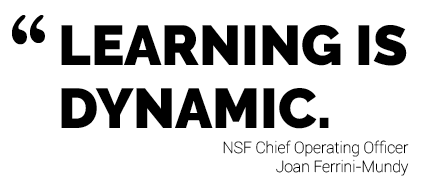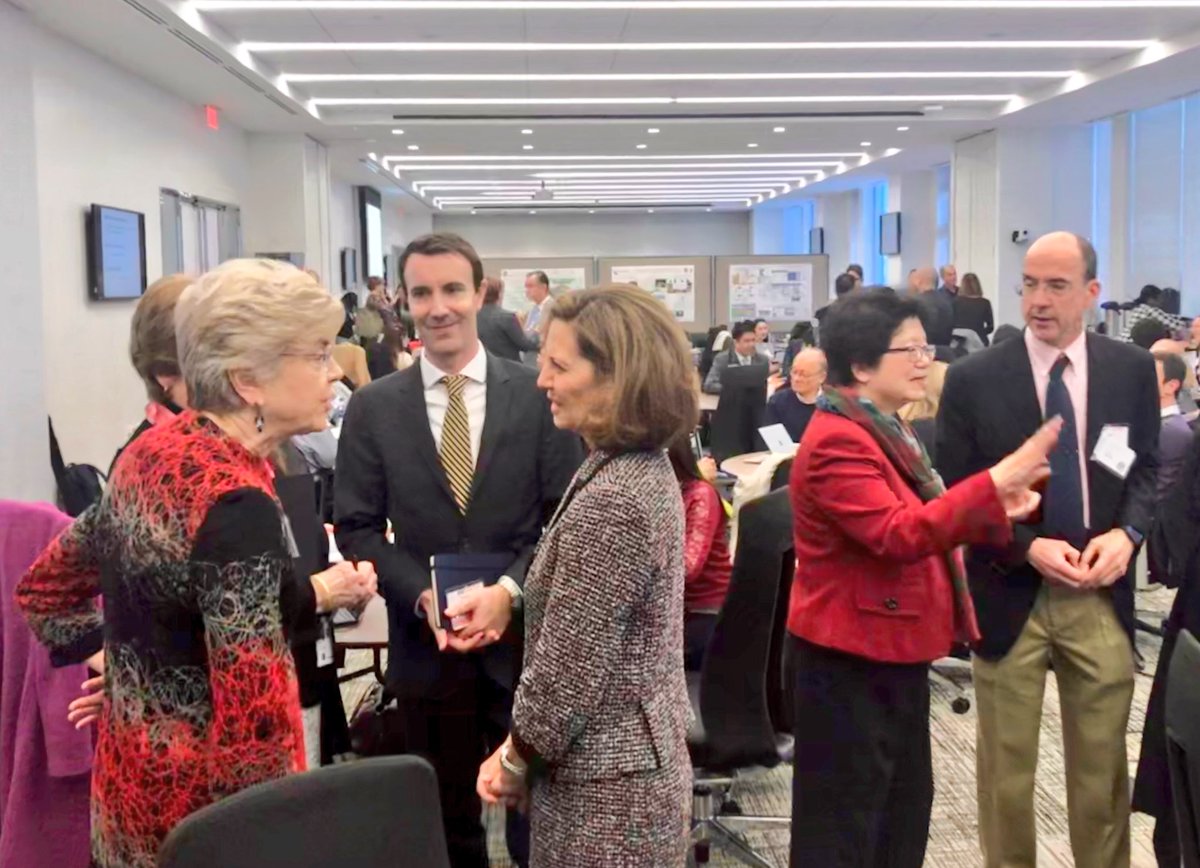Conference Brings Together Global Researchers on the Science of Learning
Educators, cognitive psychologists, computer engineers, neuroscientists, policy makers and representatives from the National Science Foundation (NSF) recently convened in Virginia for a two-day conference called the Global Convergence on the Science of Learning to examine the scope and complexity of how humans, other animals, and machines learn and share ideas and challenges for leveraging technology to improve education.
 Hosted by the UC San Diego Temporal Dynamics of Learning Center (TDLC) and organized by QI researchers, Andrea Chiba and Leanne Chukoskie, the meeting focused on improving education for children and the role of science in learning. Invited participants included researchers funded through the National Science Foundation’s (NSF) Science of Learning program. Chiba, Co-Director of TDLC, made the meeting global by including members of NSF’s Beijing office in China, the Brazilian Science of Learning Network, and other international representatives focused on improving education in their areas. Chukoskie, a Director of Scientific Programs at TDLC, made it convergent by inviting investigators from around the United States who are researching ways to improve education from various disciplinary angles.
Hosted by the UC San Diego Temporal Dynamics of Learning Center (TDLC) and organized by QI researchers, Andrea Chiba and Leanne Chukoskie, the meeting focused on improving education for children and the role of science in learning. Invited participants included researchers funded through the National Science Foundation’s (NSF) Science of Learning program. Chiba, Co-Director of TDLC, made the meeting global by including members of NSF’s Beijing office in China, the Brazilian Science of Learning Network, and other international representatives focused on improving education in their areas. Chukoskie, a Director of Scientific Programs at TDLC, made it convergent by inviting investigators from around the United States who are researching ways to improve education from various disciplinary angles.
Introductions and opening remarks included comments from NSF Assistant Director of Social, Behavioral, and Economic Sciences Fay Lomax Cook, First Lady of Virginia Pamela Northam, and NSF Chief Operating Officer Joan Ferrini-Mundy who stressed the need for multi-disciplinary collaboration and NSF’s commitment to advancing learning research and technology.

“Learning is dynamic and brings with it many deeply complex interactions of scope and scale that cannot be well understood by any one discipline alone or by individuals working in isolation,” said Ferrini-Mundy. “NSF’s investment in the science of learning is grounded in the belief that basic science research in this arena will lead to innovations in solving societal challenges – including improving education at scale, developing useful technology, and preparing a workforce to be tomorrow’s innovators, discoverers, and skilled technicians.”
One session on the role of science of learning in education emphasized the need for an interdisciplinary approach to inform education policy at multiple levels of application. The session was moderated by the former Governor of West Virginia, Bob Wise.
Special sessions were also held on philanthropic and investor interests related to the science of learning and included panelists from well-known non-profit organizations, such as the Bill and Melinda Gates Foundation and the Overdeck Foundation, the Alliance for Excellent Education, as well as venture capitalists.
Other sessions included the effects of poverty on learning, incorporation of technology into the learning environment, and what parents and grandparents can do to support the science of learning. Participants also spoke about video games to train attention in autistic users, gender inclusiveness in STEM education, cultural and language impact on learning, and pioneering models of college instruction.
NSF program director Soo-Siang Lim praised the event for “bringing the science of learning community to the next level of engagement and involvement.”
“This is so critical if we are to sustain and grow the intellectual legacy of the NSF Science of Learning Program and the societal benefits we seek to achieve from NSF investments in basic science,” Lim said. “The overwhelming interest generated by this meeting is gratifying – and eye-opening as well, to the potential opportunities in other public/private sectors that can be leveraged towards our shared goals.”
Media Contacts
Tiffany Fox
(858) 246-0353
tfox@ucsd.edu
